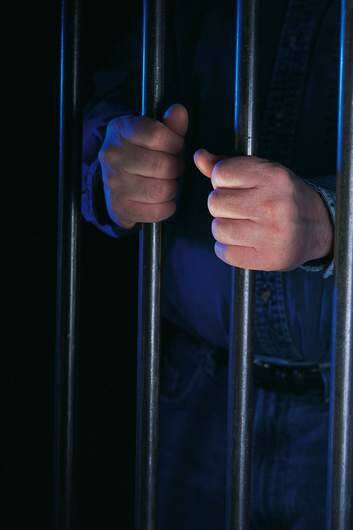The recent package of new laws that aim to restrict the activities of gangs of motorcycle riders in Queensland has received wide media coverage throughout Australia and drawn attention to the long-running debate about whether or not mandatory minimum sentences are effective in reducing anti-social behaviour.
Subscribe now for unlimited access.
$0/
(min cost $0)
or signup to continue reading
This package is generally referred to as the ''anti-bikie laws'' and includes bans on gatherings of members of proscribed gangs, even in their own clubhouses, prohibitions against the wearing of club colours in licensed venues, bans on working in tattoo parlours, and bans on recruiting new members. Gang members will face mandatory minimum sentences for assaulting police officers and for possession or trafficking in firearms or drugs. In some circumstances, they could be sentenced to 15 years in a maximum security jail.

Queensland is not the only Australian jurisdiction to resort to mandatory imprisonment. Examples can be found in the Northern Territory (for murder, rape and all offences involving violence), Western Australia (for repeat adult and juvenile offenders convicted of residential burglary), NSW (for the murder of a police officer) and the Commonwealth (for people smuggling).
Some of these examples are in direct contradiction of the central recommendation of the Royal Commission into Aboriginal Deaths in Custody, which was that sentences of imprisonment should only be imposed after all other options have been considered. This is especially true in the Northern Territory where imprisonment seems to be the first, rather than the last, option.
It is possible that further legislation of this type could emerge from the Commonwealth as the Prime Minister, Tony Abbott, has apparently expressed his support for the new legislation in Queensland and hinted that a national approach to criminal motorcycle gangs could be appropriate.
It is remarkable that the extension of mandatory minimum sentencing is being considered in Australia, at exactly the same time as the US is actively moving in the opposite direction. Until recently nearly 1 per cent of all adults were behind bars at any time in federal penitentiaries, state prisons or county jails. It is now being widely recognised that one of the reasons for the extremely high imprisonment rate in America was the application of mandatory sentencing, often based on the slogan ''three strikes and you're out''.
This type of legislation has resulted in numerous cases of absurdly harsh penalties being imposed on relatively low-level offenders, such as impoverished vagrants stealing items of food for a third time and consequently being sentenced to life imprisonment. Sentences such as this are now starting to be seen as unacceptable in any civilised society, as well as being extremely expensive and not effective in reducing crime.
For these reasons it seems quite likely that within the next year or two we will learn about wide-ranging legislation in the US, initially at the federal level, that will significantly curtail the use of mandatory minimum sentencing in that country.
In Australia, politicians who accept the populist view that judges are too lenient in their sentencing of serious offenders will be the ones who are likely to support mandatory minimum sentencing, but there has been much debate about whether or not the majority of the community really supports harsher penalties. There is no doubt that in every major Australian newspaper there are many more published letters to the editor criticising judges for their lenient sentencing than there are commending judges for their fairness, but this may not be the whole story. A number of studies have shown, for example, that when the basic facts about offenders and their offences are presented with some contextual background there is much more tolerance for more lenient sentences.
Furthermore, the Law Institute of Victoria claims that when people who have served on juries are
asked what sentence they would impose on a convicted offender, over half of the jurors suggested a more lenient sentence than the trial judge had imposed. And when they were informed of the actual sentence imposed by the judge, 90 per cent of jurors said that the judge's sentence was (very or fairly) appropriate.
The Institute has also suggested that mandatory sentencing would increase court delays as more offenders would contest the charges laid against them in order to reduce the possibility of a mandatory minimum sentence being imposed upon them. This would mean that greater costs would be imposed on prosecution and legal aid services. The major increased costs stemming from mandatory sentencing would come, however, from predicted increases in the number of prisoners, as was found in America.
It might have been appropriate in the early days of establishing new court systems for legislation specifying minimum terms to be enacted to ensure some degree of uniformity. In those days much of the sentencing was done by unqualified and untrained justices of the peace. For many years now all Australian states and territories have appointed highly trained and experienced judges and magistrates who exercise wide discretion in their sentencing decisions, and there are a number of factors that ensure that sentencing is just.
The normal criminal law in all Australian jurisdictions provides maximum sentences for every type of criminal offending, and all jurisdictions provide opportunities for appeals to be lodged against sentences that are considered to be either too harsh or too lenient. There is simply no need or justification for the continuation of mandatory sentencing in this country.
It is possible that the new Queensland package of anti-bikie laws will be challenged in the High Court but it is hard to imagine such a challenge being successful as the laws were passed by the legitimate elected government of Queensland. In this type of issue, public opinion is likely to be more effective than any appeal to higher authority, and that opinion should state firmly and clearly that mandatory minimum sentencing has no place in a modern and professional criminal judicial system.
David Biles is a consultant criminologist in Canberra.
biles@netspeed.com.au

